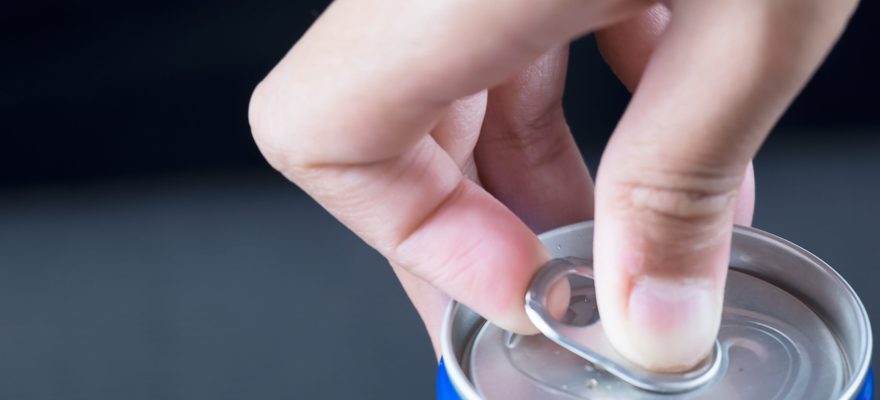
There is yet another social media trend that could hurt kids. Influencers on YouTube and other channels are pushing to their followers Prime energy drink, a caffeine concoction that can result in anxiety, dehydration and in some cases even heart issues in those who consume it.
Prime, created by Prime Hydration, LLC, a popular U.K.-based energy drink, has hit the markets here in the United States, and kids are noticing. With even more caffeine than Red Bull, it has warnings posted in multiple spots on its online FAQ page that read, “Prime Energy is not recommended for children under the age of 18, women who are pregnant or nursing or individuals who are sensitive to caffeine.”
Are Your Kids Drinking It?
Despite the warning labels, Prime is a popular drink with many teens, and some schools around the country have even started banning it
But that’s not stopping YouTubers Logan Paul and KSI from pushing the controversial stuff onto their followers—many of whom are tween and teen boys who admire the influencers’ fame, success and messaging.
What Makes Prime Energy Drink so Bad?
There’s a flood of energy drinks available, so what makes Prime such a center of controversy? For starters, it contains 200 mg of caffeine as its marketing boasts zero sugar and lots of electrolytes per 12 oz. can. (NOTE: There is a version of the drink that is caffeine-free).
By comparison, Prime’s competitors, Monster and Red Bull, have approximately 120mg and 113mg of caffeine, respectively.
Leslie Schilling, RDN, is a sports nutritionist, nutrition therapist and author of the upcoming book, Feed Yourself, which discusses diet culture myths and sheds light on health and well-being. She explained that the amount of caffeine in Prime is really high– even for adults.
“What caffeine can do to kids is increase their heart rate, which can make them jittery,” Schilling, who specializes in disordered eating, sports nutrition, family nutrition and weight concerns, said. “It can increase their blood pressure and cause GI distress in some people. It can also make them feel anxious. So if you already have a kid who’s a little nervous, it can really exacerbate some underlying issues.”
But, as history has told us, when a product is backed by celebrities (or these days, by “influencers,”) it could have a big impact on its sales—even if it’s not the most healthy item on the market.
Paul, an actor-wrestler, and KSI, an English rapper and boxer, have over 40 million YouTube subscribers between them. Many of their followers are boys and young men. The Super Bowl even ran a Prime Hydration ad this year, featuring Paul and KSI dubbing it the “fastest growing sports drink in history.”
According to the Centers for Disease Control and Prevention, “The American Academy of Pediatrics states that caffeine and other stimulant substances contained in energy drinks have no place in the diet of children and adolescents.” The CDC also lists the dangers of energy drinks, which include dehydration, heart complications such as irregular heartbeat and heart failure, anxiety and insomnia.
While there isn’t much previous research on children and caffeine, Schilling explained, there is plenty of evidence that indicates the harm.
“We see these anecdotal things,” she explained. “We know it causes harm because we’ve had lots of children in the ER with chest pain and panic attacks.”
In fact, The Independent recently wrote about a U.K. student who suffered a cardiac episode after drinking a Prime energy drink. The article explained that the child had to “have their stomach pumped,” but is better now.
How Parents and Schools are Responding to the Prime Energy Drink Trend
The Prime energy drink trend has caught the attention of schools and parents in recent months. Some schools across the country and around the world have even started to ban the drink because of its health risks to kids.
According to NorthJersey.com, a principal in Holmdel, NJ, sent an email to parents about the drink after the school nurse informed him of its potential dangers. And schools in Australia are banning students from bringing the caffeine-soaked beverage on campus.
If you’re wondering about schools here in NYC, the Department of Education doesn’t usually ban foods, an agency spokesperson said.
Parents have also posted throughout Twitter about their children’s schools banning the drink. (We reached out to Prime to get the company’s thoughts on the bans, but didn’t hear back.
But KSI isn’t taking these bans lightly. He posted this on Twitter last year when school bans went into action:
A school had the AUDACITY to ban Prime, leaving their students dehydrated.
To counter this blatant wrongdoing, we’ll be sending a truckload of Prime to this school and many other schools. Just retweet this tweet to represent your school to get some Prime. pic.twitter.com/bfQhGgjzB2
— ksi (@KSI) September 28, 2022
Keeping Kids Healthy
Of course, it’s impossible to monitor everything your kids eat. But here’s some advice from experts on what parents can do to limit or prevent their kids’ from consuming energy drinks like Prime.
Model good behavior. Parents can set an example by not consuming energy drinks in front of their kids. And don’t bring them into the house.
Take action. According to the CDC, parents, school staff and community members can join school or district wellness committees that set policies for health and wellness and establish or revise nutrition standards to address the sale and marketing of energy drinks in school settings.
Eat regular meals and snacks. Food is first when it comes to energy, Schilling said, adding that kids can drink water, milk and even chocolate milk after exercising.
Sleep is key. Always make sure your child is getting enough shut eye.
“If parents and coaches are saying ‘show up fed, hydrated and rested,’ then your child will have what they need,” Schilling said.
Wanna read more stuff like this? Get our newsletters packed with ideas, events, and information for parents in Staten Island.
"*" indicates required fields

